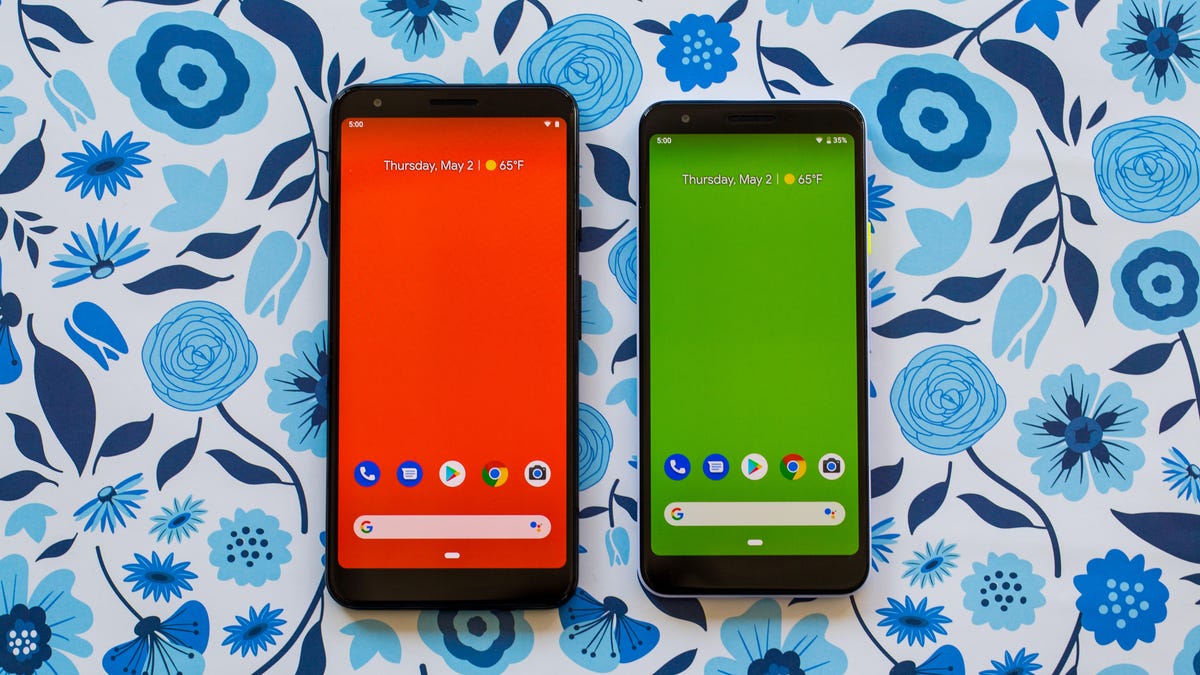Google is finally ready to take on the iPhone and Samsung phones
Commentary: The time is ripe for Pixel phones to finally compete.

For the first time in three years, Google is ready to solve its Pixel problem. This week, it ended its exclusive carrier relationship with Verizon, which kept Pixel phones out of every other wireless provider's store, even though you could buy a Pixel to use on any US carrier, through Google's online store. But now, for the first time ever, you'll be able to walk into any T-Mobile , Verizon or Sprint store to buy the new Pixel 3A and Pixel 3A XL.
Google's exclusive agreement with Verizon wasn't enough to sell the Pixel 3. Against a backdrop of declining Pixel sales year over year, the widespread availability of these new Pixel 3A phones are the first sign of hope that Google could attract buyers away from Samsung 's Galaxy devices and Apple iPhones .
The significance of extending beyond Verizon's exclusivity is enormous, not just for the midrange Pixel 3A phones, but for the Pixel 4 and all Pixels going forward. For Google , getting Pixels displayed alongside the Samsung Galaxy devices and Apple iPhones gives Google a chance to win over some of their customers.
Verizon will still offer the new Pixel 3A ($399, £399, AU$649) and Pixel 3A XL ($479, £469, AU$799). But starting Wednesday, you'll be able to walk into any T-Mobile or Sprint store to buy one as well. The same goes for Target, Walmart and Best Buy. Online, you can buy from Amazon as well as Google's online store. And though you won't find the Pixel phones inside AT&T's shops, you can take any unlocked Pixel to AT&T to use on its service.
Phone brands across the board are seeing the market cool, while new technologies like foldable phones and 5G connections prepare to turn the industry on its head. Google will need to marshal its deep resources in 2019. Branching out beyond Verizon offers the Pixel brand its best opportunity to be seen.
To be sure, Verizon's influence as the US' largest mobile network gave Pixel phones a boost compared with selling the devices through Google's online store alone, but opening up the Pixel 3A phones to other vendors unlocks an opportunity to exponentially boost Google's visibility as a phone-maker.
Pixel phones are known for their "pure" Android operating system, first-in-line Android security updates and top-of-class camera performance. The 2018 Pixel 3 was CNET's best Android phone of the year with good reason.
The midrange Pixel 3A phones, which have plastic bodies and slower processors but the Pixel 3's camera, might seem like an odd candidate to set Google's course into the open ocean. October's rumored high-end Pixel 4 might make more immediate sense. But Google is embracing the Pixel 3A phones as a test bed for what could be.
Priced to sell, these affordable plastic handsets fit perfectly into Google's strategy to "get as many Pixel users as we possibly can," Mario Quieroz, who leads the Pixel team, told CNET in an interview. "Whether it's midtier or premium."
The strategy certainly is a new one for Google, a company that dabbled in midrange and premium Nexus phones before putting its effort into the house-made Pixel brand in October 2016. Verizon's been Google's faithful Pixel patron, but though the phones sold in Google's online store for any US carrier, buyers' common perception was that Verizon was their only Pixel portal.
Keeping Verizon as its exclusive carrier partner may have hurt Google's opportunity to sell more Pixels, though Google has been careful to avoid discussing how exclusivity may have played a role in restricting total sales. In an earnings call last week, Ruth Porat, CFO of Google's parent company Alphabet, said Pixel sales have declined year over year partly because of "heavy promotional activity industrywide" and "recent pressures in the premium smartphone market."
If Google is going to dig itself out of its Pixel-shaped hole, it's going to need all the partners it can get.
Google I/O 2019
Originally published May 8 at 3 a.m. PT.

